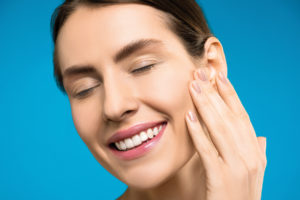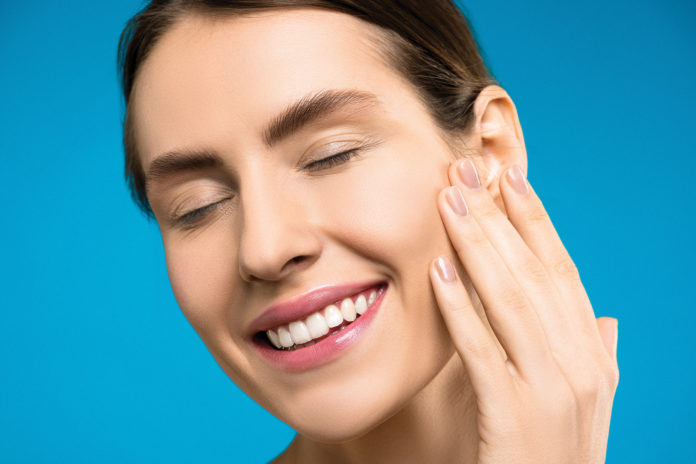As one of the most popular cosmetic dental procedures in the United States, teeth whitening offers quite a few benefits. Many of these are remarkably subtle, such as the potential improvements to your mental health and social life, while others are more straightforward and obvious. Intrigued? Then let’s get into it.
How Does Teeth Whitening Work?
Whitening your teeth can be done either professionally or at home using an over-the-counter whitening treatment. These home treatments come in four primary types: pens or gels, strips and trays, LED light devices, and whitening toothpaste.
Using a strip, a tray, or a LED device typically produces a fairly dramatic result, while using a paste, a pen, or a gel is more likely to provide minor to moderate results. Whitening your teeth at home is a fairly popular option, in part because it’s cheaper than having your teeth whitened professionally.
A professional teeth whitening, on the other hand, is rather more straightforward. The dentist records the current color of your teeth. Once this is done, your teeth will be polished to remove debris such as plaque from their surface.
The dentist will then apply a whitening solution (typically one that contains carbamide peroxide or hydrogen peroxide) to the teeth. Many whitening products will also require the peroxide to be activated via either light or laser.
Ideally, this solution should be left on your teeth for between 30 and 60 minutes underneath the laser or the light. Once this is done, your teeth will be rinsed. The dentist may also opt to apply fluoride to help reduce sensitivity. If your teeth are not yet the shade you’d like them to be at the end of this experience, then you may go back for further visits until you succeed in achieving the shade you want.
How Can Whitening Your Teeth Benefit You?

Confidence Boost
Feeling self-conscious isn’t fun. This holds true across the board, but it’s especially true when you’re feeling self-conscious about something chronic or difficult to hide. Yellow teeth, unfortunately, tend to be both.
Consequently, you may end up feeling uncomfortable or even anxious in social interactions whenever you have to talk or smile. As you might imagine, this really wouldn’t do anything to improve anyone’s self-confidence, given that people tend to link their appearance to their self-esteem. Teeth whitening can permanently erase this source of chronic anxiety and discomfort.
Better Social Opportunities
Whitening your teeth can improve your social life. After all, a smile is an essential part of connecting with people. You can potentially make a better first impression on people with a bright white smile.
A common reason that people ultimately decide to whiten their teeth is that they are interested in the ways it might benefit their love lives. However, romantic relationships aren’t the only type of relationship that can benefit from a good first impression. If you’re not looking for a romantic partner, then whitening your teeth could help you expand your circle of friends or even impress business associates just as easily.
Staying Young
Believe it or not, whitening your teeth can help you look younger. A bright white smile tends to draw the eye and minimize any wrinkles and lines on your face. Additionally, a white smile can make you look healthier, which can help you look younger to some degree.
Improved Appearance
This is arguably the most obvious reason for someone to opt for whitening their teeth. However, it’s worth taking into consideration. After all, there’s no harm in taking pride in your appearance.
Risks Of Teeth Whitening
Teeth whitening is not a dangerous or even an invasive procedure. However, there are a few things you should know about before you decide to whiten your teeth.
These include the fact that people with transparent teeth, women who are pregnant, people with highly sensitive teeth, and people who are sensitive to peroxide should avoid whitening their teeth. If you have a crack in your tooth or an unfilled cavity, then you may want to reconsider (or at least delay) whitening your teeth, owing to the chance that the bleaching agents might cause tooth damage.










